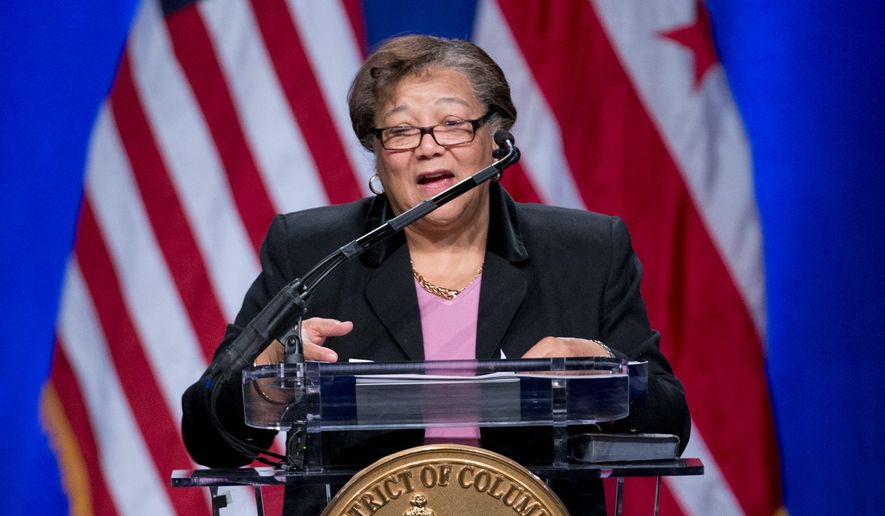The D.C. Council members on Tuesday introduced legislation that would require landlords to provide air conditioning to elderly tenants and would strengthen the city’s ethics laws.
And after a passionate debate, the council voted 7-5 against emergency legislation that would have overridden Mayor Muriel Bowser’s decision to close Washington Metropolitan Opportunity Academy, a school for at-risk youth and students who were kicked out of other schools.
Council member Anita Bonds, at-large Democrat, introduced the Keeping Cool Elderly Tenants and Tenants with a Disability Amendment Act of 2020, which would require landlords to provide, upon request, air conditioning equipment capable of maintaining a room temperature of 78 degrees Fahrenheit or less.
“While the District’s housing code requires housing providers to heat apartments and maintain certain minimum temperature during the winter in residential buildings, the code does not require that air conditioning be provided during the summer,” Ms. Bonds said. “With the rise in global temperatures in recent years, the lack of air conditioning can cause severe medical risks for such vulnerable populations as the elderly and persons with a disability.”
Asked if she is concerned the legislation could lead to discrimination against elderly tenants, Ms. Bonds said she “certainly hopes not,” adding that there is “always a yin and yang in everything we do.”
In 2019, the District endured 62 90-degree days — five days fewer than the record and 26 days more than the average, Ms. Bonds said.
Council member David Grosso, at-large independent, introduced a bill that would strengthen government ethics laws. He said his proposal was inspired by the investigation into former colleague Jack Evans.
“The council’s experience over the last several months was not one I would wish on any legislative body. A member exploited his position and relationships for his own personal gain and would’ve nearly gotten away with it had it not been for persistent media reports and mounting public pressure for action,” Mr. Grosso said. “It is now time to take some of the lessons learned from that painful process to tighten up our ethics laws where appropriate and mitigate the risk of corrupt activity by members in the future.”
The BEGA Loophole Closure Amendment Act of 2020 would require the Board of Ethics and Government Accountability to conduct training on the council’s code of conduct every year and review public official’s disclosure forms for accuracy and completeness. It also would clarify that officials must disclose clients of affiliated organizations.
The council’s ethics investigation into Mr. Evans revealed he did not properly fill out his disclosure forms and expressed a general lack of understanding of the code of conduct.
Meanwhile, Washington Metropolitan Opportunity Academy students, some crying, left the council chambers after lawmakers’ last-ditch effort to keep their school open failed.
Council member Robert White Jr., at-large Democrat, introduced emergency legislation to keep the school open for one more year in response to D.C. Public School Chancellor Lewis D. Ferebee’s announcement that the school would be closing at the end of the year due to declining enrollment, poor attendance records, and subpar facilities and resources.
• Sophie Kaplan can be reached at skaplan@washingtontimes.com.




Please read our comment policy before commenting.